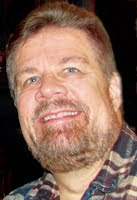Our Father, who art in heaven,
hallowed be Thy name.
Thy kingdom come,
Thy will be done,
on Earth as it is in Heaven.
Give us this day our daily bread,
and forgive us our trespasses
as we forgive those who trespass against us.
And lead us not into temptation,
but deliver us from evil.
For Thine is the Kingdom
and the power
and the glory.
Forever and ever.
Amen.
The Lord’s Prayer consists of seventy words in its common English translation. Seventy. Yet this seemingly simple expression of faith transcends hundreds of languages and cultures. Around the world, some two billion Christians turn to this compact prayer for comfort, support and inspiration.
But how many appreciate its nuances as a work of literature? These 70 words articulate the astonishing architecture (as well as many surprising subtleties) of a creed spanning more than two millennia.
Whatever convoluted process eventually resulted in the compilation of the Christian Bible over several centuries, reasonable persons can agree that these 70 words are “The Word of God.” This is true, perhaps, literally. It is almost certainly true in the sense that the exact words recorded in the original Greek (or, perhaps, Hebrew – it’s a long story) were spoken or divinely inspired by a man known as Jesus Christ, whom believers (myself included) know as the Son of God within the Holy Trinity.
Wow.
Short take: It’s an amazing prayer.
Consider only the first two words: “Our Father.” To 1st century listeners, the idea of one, single paternal Father was peculiar, at best. Up til now, “gods” had been created largely at whim, and most often resembled a vindictive brute home from carousing downtown bars on a Friday night: Thor, casting bolts; the warrior Ares and the sacrificially worshiped Quetzalcoatl; even the slave-mongering Yahweh of the Old Testament, who scourged the whole human race (save for eight zookeepers floating in an ark). The words “Our Father” introduce a man-god who taught us to turn the other cheek – a gentle innocent who accepted torture and crucifixion for the sins of strangers.
Two pretty good words, no?
The remaining 68 words characterize a New World Order in which sins are forgiven, not punished; in which we receive the precise dosage of our needs – no more, no less – each day, from a glorious, powerful God who does all in His power to shelter us from evil and the devil. And, significantly, God art in Heaven (always has and always will, but right now is in Heaven. God lives!)
That last paragraph alone, which pales in the shadow of the prayer’s eloquence – took 70 words. Corporate statements of mission and goal typically are far wordier in attempting to forge a code of conduct and purpose for a handful of employees laboring for a company likely to be bankrupt or merged away in a decade or two.
The Lord’s Prayer has stood for 200 tumultuous decades as a shining beacon for Christians … and even as inspiration for Buddhists, Muslims, Jews, Sikhs, Hindus, and even atheists who appreciate its profound logic.
Any wanna-be Writer out there who can top that act? Thought not. It’s Perfect.

No comments:
Post a Comment